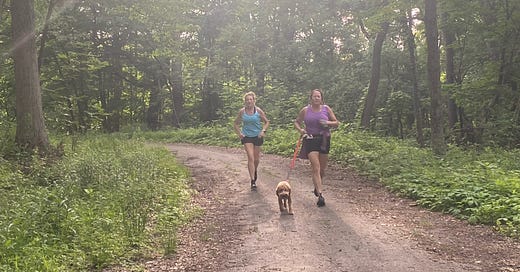Are you a lifelong learner? As a writer, you probably identify this way—because writing flows from a deep well of experience and intellectual endeavor. I have not been in a formal classroom setting for decades but consider myself a lifelong learner.
Lifelong learning doesn’t just happen. It requires intention and action. A lifelong learner hungers and thirsts for knowledge, seeks out wisdom. They use every experience to grow intellectually and search for opportunities to build new skills and proficiencies. They understand that learning is a lifelong endeavor, required to maintain vitality.
I love that the Bible personifies Wisdom as a woman, and reminds us to seek it out:
“Never walk away from Wisdom—she guards your life;
love her—she keeps her eye on you.
Above all and before all, do this: Get Wisdom!
Write this at the top of your list: Get Understanding!
Throw your arms around her—believe me, you won’t regret it;
never let her go—she’ll make your life glorious.
She’ll garland your life with grace,
she’ll festoon your days with beauty.” (Proverbs 4:7-9, The Message)
Writers, by definition, are lifelong learners. We throw our arms around wisdom, we go after understanding. We have an insatiable curiosity about the world, and a desire to analyze and reflect, to pin thoughts to the page. Writing flows from a well within us that must be primed with experience and study. We learn in order to inform our writing, and then, we learn more by the act of writing itself.
Writers of non-fiction read and research, distilling what they’ve learned and applying critical thinking skills to add their own insights into the facts they present on the page.
Novelists are forever learning about human interactions, what motivates characters. They’re curious about how to best plot a story to keep the reader engaged. They research history or science to make their stories ring true. They read about writing to improve their craft.
Writers are lifelong learners, or at least, they should be. When you dedicate yourself to “continuous development” your writing can only improve. It is also a satisfying way to live.
There’s never been a better time to be a lifelong learner. The internet puts reams of information at our fingertips. There are online classes, webinars, videos, tutorials. It’s astounding.
But how can you be intentional about lifelong learning?
Five strategies for lifelong learning
Here are five strategies for writers who want to be lifelong learners (and hence, better writers). Obviously, these are just a few. I’m sure you can add a few of your own to this list.
1. Wonder. We may think we can only experience wonder when we see or experience something extraordinary: a marvelous sunset or a stunning view, the birth of a child or an answered prayer. But wonder is a habit we can build and practice through mindfulness, slowing down and simply paying attention to the amazing in the everyday. Cultivate curiosity. Ask a lot of questions. Channel your inner four-year-old and ask “why?” and “how does it work?” Approach every situation in life with what Zen Buddhists call a beginner’s mind, that is, as if you are brand new to it. When you believe you have a lot to learn, you will learn a lot.
2. Absorb. A learner absorbs knowledge. Don’t just ask questions, listen deeply and reflect on what you’ve learned. Let knowledge percolate down from your head to your heart, and then flow into your actions. Read a lot, as I explored in this recent newsletter. Reading is an essential part of the writing life and required for lifelong learning. Reflect on what you read, what you get curious about. Don’t just ask questions, ponder the answers. Dig a little deeper, ask the follow up question. Take time to listen to divine wisdom, other people, and to your own life (my book Listen can guide you). Don’t rush, savor. Let ideas marinate, not just run off like rainwater on parched ground.
3. Move. Studies show that our intellectual and mental health is inexorably linked to our physical health. Dr. Scott McGinnis, an instructor in neurology at Harvard Medical School, says that exercise can literally grow your brain, and boost memory and thinking skills. (This article has some great info.) So moving your body is a great strategy for lifelong learners. But movement can include other things: getting from where you are to where you want to be by setting goals, for example. Or traveling. When we move through the world and explore it, we expose ourselves to other cultures, new ways of doing things. The experience of travel helps us learn about the world and people. It builds both intellectual and emotional intelligence.
4. Risk. Lifelong learners take risks. Writers who want to learn should be brave enough to ask for feedback on their work. They can hire an editor or writing coach, take writing classes, attend a writers’ conference where they can pitch their book idea to an agent or editor, and learn from industry experts. I love Glennon Doyle’s mantra, “We can do hard things.” Because when we do them, we build confidence and strength for the next hard thing. The things become less hard.
Me, hiking The Narrows at Zion National Park (photo by Melanie Kent)
5. Rest. This might seem like a strange strategy for becoming a lifelong learner. But in order to grow, we need both challenge and reprieve. The point of lifelong learning is to grow as a writer, as a human. Growth, or progress, requires rest. (Skeptical? Just see how you function if you go several nights without sleep.) I’ve run a dozen half marathons. To prepare for a race, I follow a training schedule which prescribes a variety of workouts, but also, one day per week of rest. Humans were designed from the beginning to thrive when they incorporate work, play, and rest into their lives. Even learners need to give their mind and body a rest, in order to make the long journey of being a lifelong learner.
Photo by Dziana Hasanbekava: https://www.pexels.com/
P.S. A great way for writers to learn about writing and publishing is to attend a writers conference. Priority registration for the West Coast Christian Writers Conference opens this Monday (for conference members only). WCCW members receive priority registration June 24-30, 2024, and have early access to agent, editor, coaching, and critique appointments, as well as CREW mentoring groups. Members also receive access throughout the year to free webinars, mini masterclasses, and lots of other great perks. Learn more at https://www.westcoastchristianwriters.com/







"We learn in order to inform our writing, and then, we learn more by the act of writing itself."
Yes. I often don't know my own thoughts until I have wrestled to distill them into sentences and paragraphs.
Also, I love that you include traveling as movement. 💜